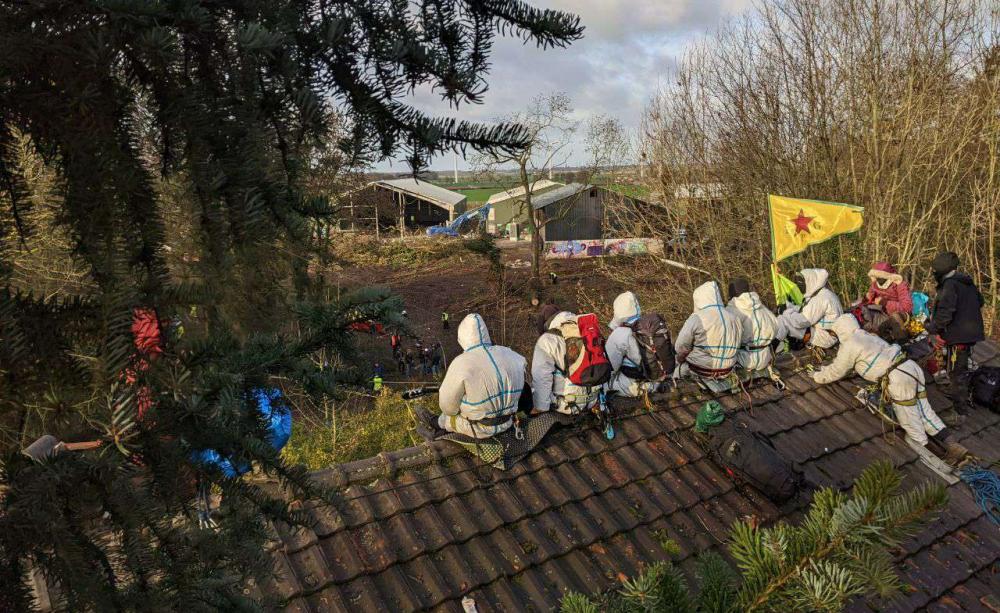Why are activists gathering to save a German village from a coal mine?
Environmental activists have been criticizing the expansion for a while.

A few minutes every morning is all you need.
Stay up to date on the world's Headlines and Human Stories. It's fun, it's factual, it's fluff-free.
The backstory: The Garzweiler II is an open-cast lignite coal mine in western Germany, close to Dusseldorf. It takes up about 14 square miles (35 square kilometers) of land and has been slowly expanding for years. As the mine has gotten bigger, surrounding buildings, towns and villages have been destroyed, along with an entire wind farm. Lignite is the dirtiest form of coal, which is also the most polluting source of energy. The mine is still expanding, even though the government agreed to cut carbon emissions up to 95% by 2050 back in 2016.
More recently: Environmental activists have been criticizing the expansion for a while. The latest village in trouble because of the mine’s expansion is Lützerath, now considered a climate flashpoint that has stirred up international attention and protests. This abandoned community has been occupied by activists for upwards of two years.
Last year, Germany’s Green Party and the country’s economy and climate minister made a deal with RWE (the company that owns the Garzweiler). The region would phase out coal by 2030, and the mine agreed to save five villages on the chopping block. But, as part of the deal, Lützerath would be the last to go down. Starting last Wednesday, police in riot gear started removing the hundreds of occupying protesters, pulling them from buildings and tearing down structures.
The development: On Saturday, thousands of activists held a rally outside of Lützerath in protest, and Greta Thunberg joined them. The activists say that destroying the village and expanding the mine will create massive greenhouse gas emissions. The government and RWE say that Germany needs the coal, especially right now, because of energy supply issues resulting from the Russian war on Ukraine. Meanwhile, up to 40 activists still holed up in the town, refusing to be removed.
Key comments:
"It's a gut punch that Green ministers now try to sell this backroom coal deal as a success. We won't accept that," said Olaf Bandt, the chair of the German Federation for the Environment and Nature Conservation, about the deal allowing RWE to expand over Lützerath.
"How is this possible? In the year 2023?" climate activist Greta Thunberg asked protestors during Saturday's rally.
"We're in 2023 in the middle of a climate crisis, and while destroying a village to expand one of the biggest carbon bombs in Europe should be considered criminal, it is still legal," said Sara Ayech, who leads the climate campaign at Greenpeace International, in a press release.
Germany's climate and economy minister Robert Habeck called the deal a "painful compromise that has truly been difficult for me in the past year," adding that "it had to be that way to ensure energy security in Germany."
German Chancellor Olaf Scholz argued against the point that using the village's lignite deposits would ruin Germany's climate goals. "It's exactly the other way around – we're working politically to achieve our climate goals," he said.




Comments ()